The food and agricultural system generates a large amount of plant waste, whose handling is costly and requires a management effort. However, that waste can also bring opportunities. "The parts of lettuce or artichoke we don't eat, as well as other sorts of plant waste, go through an industrial process in order for new materials to be manufactured," says Arancha Yáñez, of Feltwood. "We have developed a technology that produces environmentally-friendly industrial materials from agricultural plant waste, without adding any plastic, adhesive or binder."
The technology of this company is based on two differentiated processes: firstly, plant waste is taken and transformed into Feltwood Raw Material. This is then molded to manufacture products that are 100% biodegradable, recyclable and even compostable.
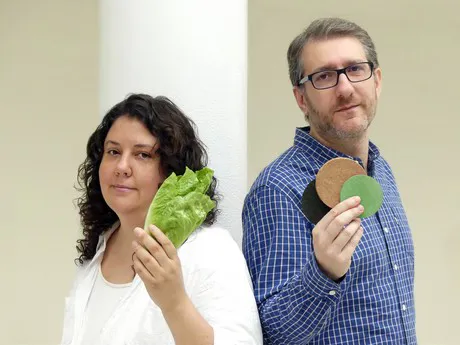
Aranchaz Yáñez, CEO; Óscar Longares, Business Development
Arancha Yáñez, founder and CEO of Feltwood, has been a diver since she was a child. "The day I came across more plastic than fish, the project was born," she says. "One of the biggest challenges we face as a society is pollution caused by non-biodegradable and toxic materials that end up in nature and the oceans. Our materials are an alternative to plastics and wood in many applications," she says.
"The alternatives to plastic must have a competitive price"
Arancha believes that the alternatives to toxic and non-biodegradable materials, such as plastic, need to have a competitive price, as well as be biodegradable and with optimal technical characteristics. “Our processes are modular, and materials with different technical properties can be obtained. This allows us to focus on more than one sector as a target market.
“After the validation of the first industrial plant, we aimed at a plan of rapid international expansion, taking advantage of the knowledge generated in that validation. The focus is in Europe, mainly the Nordic countries, as their legislation and customs make our technology attractive. Some multinationals have contacted us and we are reaching agreements for a quick internationalization while protecting our industrial property,” says the company's CEO.
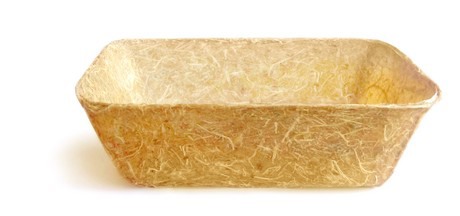
Container manufactured with lettuce waste
“The companies that generate a large amount of plant waste, and which are also looking for biodegradable materials for the production of packaging, can achieve profitability and greater efficiency while expanding their market options. Giving value to their own plant waste by transforming it into raw materials is not only a solution, but also a way to save in waste management,” says Arancha.
From lettuce to container for blueberries
“These materials are made 100% from plant fibers that we extract from more than 30 different sorts of plant waste, and we continue researching to add even more. The list of crops used includes lettuce, artichoke and pineapple, just to name a few.”
“We have three materials with different characteristics for four specific markets, all fully biodegradable, recyclable and compostable: Feltwood Insulation, focused on the construction sector, cold rooms and modular roofs, among others; Feltwood Anti-Impact, with ideal properties for protective packaging; Feltwood Pack, for the light packaging industry (small boat-shaped containers) and Feltwood Hard, ideal material for applications that require great resistance, such as furniture.”
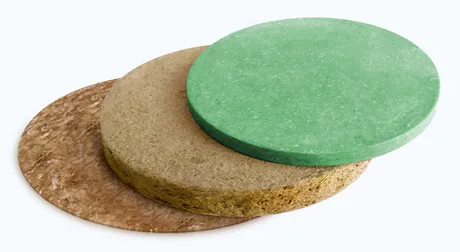
“We are currently evaluating a scale industrial production, working together with companies that help us carry out the necessary tests. The challenge is to do it in the most efficient way possible, especially in time, and meet the huge demand we receive from companies that want to manufacture and sell greener products and eliminate plastic from their production. Waste-generating companies are also coming to us looking for solutions to find out what they can do with it,” says Arancha Yáñez.
According to the CEO of the company, the process itself does not require a lot of energy. “One of our objectives is to design an efficient and optimized process and minimize the carbon footprint. For example, by having the first process take place next to the place of production and thereby limit unnecessary transport, or using renewable energy sources in production. The raw material used is plant waste and it is possible to adapt to the different kinds of waste that may exist in the production area, which is a huge advantage,” says Arancha Yáñez.
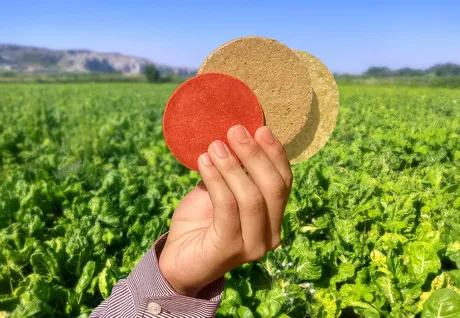
Circular economy, energy saving and commitment
Arancha explains the business model as a technology transfer by licensing the use of the patent. “This model makes it possible to reach more companies in less time and, therefore, have a greater impact worldwide. We hope that the production will begin as soon as possible, so that environmentally-friendly materials can replace plastic and other toxic materials,” says the CEO. Feltwood is indeed presented as a triple action company:
"We focus on having a positive economic, social and environmental impact:
- Economic, by transforming waste into appreciated products, improving the profitability of agricultural productions, supporting the development of rural settlements and creating a circular economy.
- Social, by reducing the use of toxic materials to protect people's health and offer safer products, especially for children.
- Environmental, by reducing the use of pollutants and reusing plant waste generated by agriculture, preventing it from ending up in aquifers or being incinerated. Also by reducing the felling of trees,” says Arancha Yáñez.
Certified as a company with an impact management system by Ship2B and the Aragón Social Responsibility seal, Feltwood is in the industrial validation stage.
For more information:
Soledad Gómez Schweizer, marketing and communication
Feltwood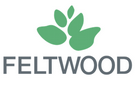
European Center for Business and Innovation
María de Luna 11
50018 Zaragoza. Spain
T +34 976 051 987
info@feltwood.com
www.feltwood.es
